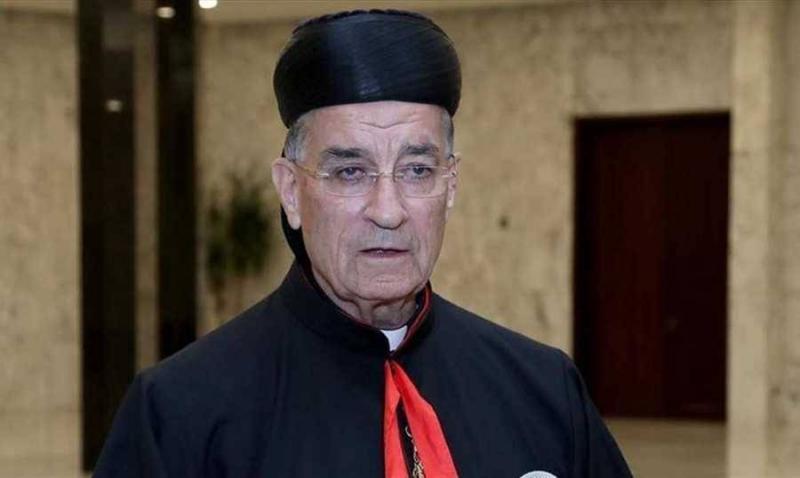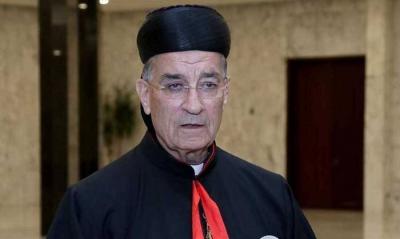Avoiding exaggeration or minimization of local political goals related to the ramifications of the ongoing presidential crisis, the launch of the new initiative yesterday by the ambassadors of the five countries engaged in a diplomatic-political effort to encourage the election of a president has indicated a developed approach beyond the previous efforts of the group, at least in terms of increasing pressure on local factions. This does not imply that a breakthrough has been achieved or is inevitably on the horizon, according to "An-Nahar."
The emphasis on positivity that Egyptian Ambassador Alaa Moussa has consistently disseminated, speaking on behalf of his colleagues, has contributed to an atmosphere of optimism regarding this new initiative. Unlike previous efforts, this initiative will engage political leaders comprehensively, albeit intermittently, leading to the assumption, as suggested by the ambassador, that the quintet is proposing a roadmap to these leaders, which signifies the group’s commitment and potential detailed involvement in forging a solution to end the presidential vacuum crisis.
Undoubtedly, the distinguishing mark and notable point of the initiation of this new endeavor by the five ambassadors was in Bkirki, where they received a firm position from Maronite Patriarch Cardinal Mar Bechara Boutros Al-Rahi, which sets a non-negotiable standard, especially since it aligns with the opposition forces' stance on adhering to the constitution in the election process. Consequently, this entails rejecting the entrenchment of any customs related to conditioning the open electoral session, as stipulated in the constitution, with any conference, forum, or prior dialogue meeting.
In this context, sources from the ambassadors of the five countries confirmed to "An-Nahar" that as of now, a roadmap has yet to be crystallized and that the goal of the new round of ambassadors is to ascertain the political factions' willingness to engage in the political process first. However, they added that its foundation is consensus. According to the same sources, the five ambassadors are playing a facilitating role in communication between the political factions, and there are positive indicators from previous meetings regarding this.
### Ain el-Tineh and Bkirki
The delegation of ambassadors from the quintet included U.S. Ambassador Lisa Johnson, French Ambassador Hervé Magro, Saudi Ambassador Walid Bukhari, Egyptian Ambassador Alaa Moussa, and Qatari Ambassador Saud bin Abdul Rahman Al Thani. Ain el-Tineh was the first stop for the ambassadors, where House Speaker Nabih Berri emphasized that the meeting was positive and would be repeated, with a consensus on the necessity of reaching an agreement to achieve the election.
The Egyptian ambassador clarified that the goal of this meeting was to affirm what Speaker Berri previously announced—that he is committed to making every effort to elect a president and facilitate the electoral process. He discussed the new signals that prompted the quintet to resume its activity, summarized under a main theme: flexibility. This electoral entitlement, as you all know, has, since its inception, seen somewhat rigid positions. Thus, what we seek is to reduce this rigidity and search for common ground. Recent positive signals suggest more flexibility, enabling us to create the common ground we discussed and foster an atmosphere conducive to achieving a breakthrough in the presidential matter.
He noted that the tangible breakthrough is that the political blocs now recognize that consensus among them is extremely important. When we talk about consensus, it means that everyone is prepared for dialogue, discussion, and consultation leading to an agreement that all can accept—this is what we are looking for.
After the ambassadors' meeting with Patriarch Al-Rahi in Bkirki, the Egyptian ambassador described the meeting as highly significant, aiming to inform him and consult with him on the steps we plan to take. The steps are built on several stages, with the first step focusing on discussions with all blocs to elect a president according to a roadmap we will present. He confirmed that our movement will benefit from the moderate bloc's activities, and we are building on this internal movement to facilitate creating a common ground for achieving the entitlement.
He clarified, "We are not discussing names, but rather a commitment; if available, discussions will be easier among the political forces regarding whom they wish to nominate for the presidency." Sources from Bkirki indicated that Patriarch Al-Rahi expressed surprise at this complex path that may not succeed, while the constitution is clear, and the democratic process requires opening the council. They added that the patriarch wished the five ambassadors success while rejecting the entrenchment of previous customs for constitutional entitlements, which manifest in traditional dialogue.
The five ambassadors are scheduled to visit former President Michel Aoun, Lebanese Forces leader Samir Geagea, and former Progressive Socialist Party leader Walid Jumblatt today.




